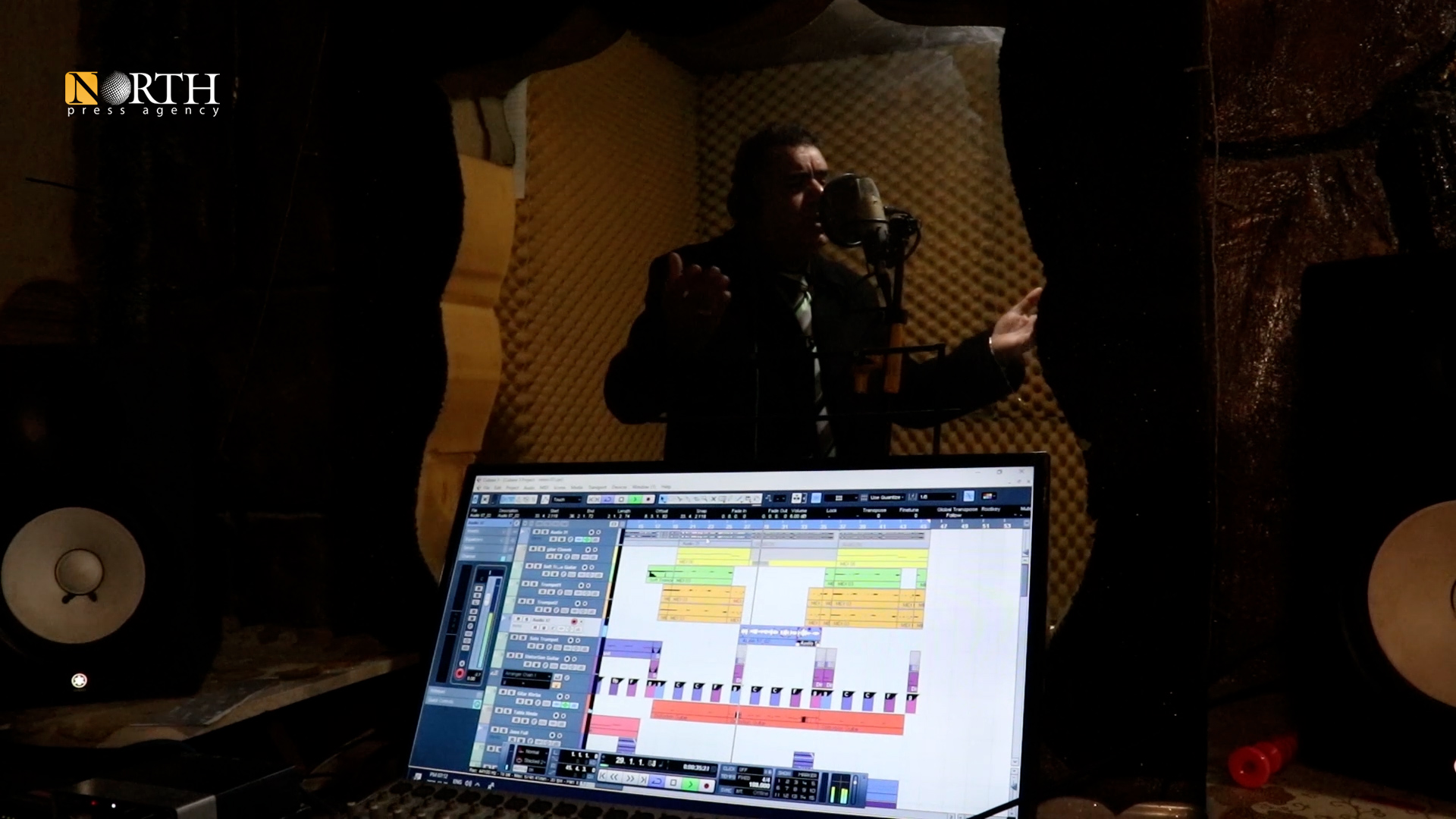DUHOK, Iraq (North Press) – Singer Khemgin Qamishlo performs a song inside his studio’s recording room while his son is busy checking the sound quality.
Khemgin Studio, in Domiz camp for Syrian refugees in the Kurdistan Region of Iraq (KRG), provides opportunities for Kurdish and Syrian singers, especially the young voices, as many of them learned to sing professionally, according to Qamishlo.
“The studio is eight years old, with the help of my brother, we opened our studio to help our artist friends,” Qamishlo says, adding that in the KRG, recording songs is very expensive compared to the income of the Syrian refugee singers there.
The studio consists of a small soundproof room in which songs are recorded, and a space for devices and equipment without which the work would not be completed.
“The studio space is now four meters by four meters, this space suits our capabilities and is sufficient to work,” Qamishlo added.
Many prominent artists recorded their songs in the studio such as the late Sa’eed Kabari, Mahmoud Aziz Shaker, Bengin Afrini, Ronijan, Hami Bave Zeido, Etidal and many others.
Khemgin Qamishlo has more than a hundred songs, in addition to many songs performed by other artists.
In the wake of the tragedy of the Yezidis in Iraq’s Sinjar district, when the Islamic State (ISIS) committed massacres against the religious minority in June 2014, Qamishlo and Sinjari artist Dakhil Osman recorded songs in the studio with the aim of documenting the tragedy of the Yezidis.
Ali Gamkin runs his father’s studio for the last four years after his uncle’s immigration to Europe.
Ali’s work is not limited to recording songs; he also creates and places the appropriate musical arrangement for the songs.
“It is not necessary to work in a big studio to have good production; with an area of one square meter, you can work and make a high quality production,” he said.
Mahmoud Aziz Shaker, an artist from northern Syria’s Sere Kaniye who lives in Erbil, said that he re-recorded one of his songs in Khemgin Studio. “The recording was great; the studio management is very cooperative with the artists.”
Shaker believes that opening a studio in the camp is a successful step, especially as recording costs are low.

